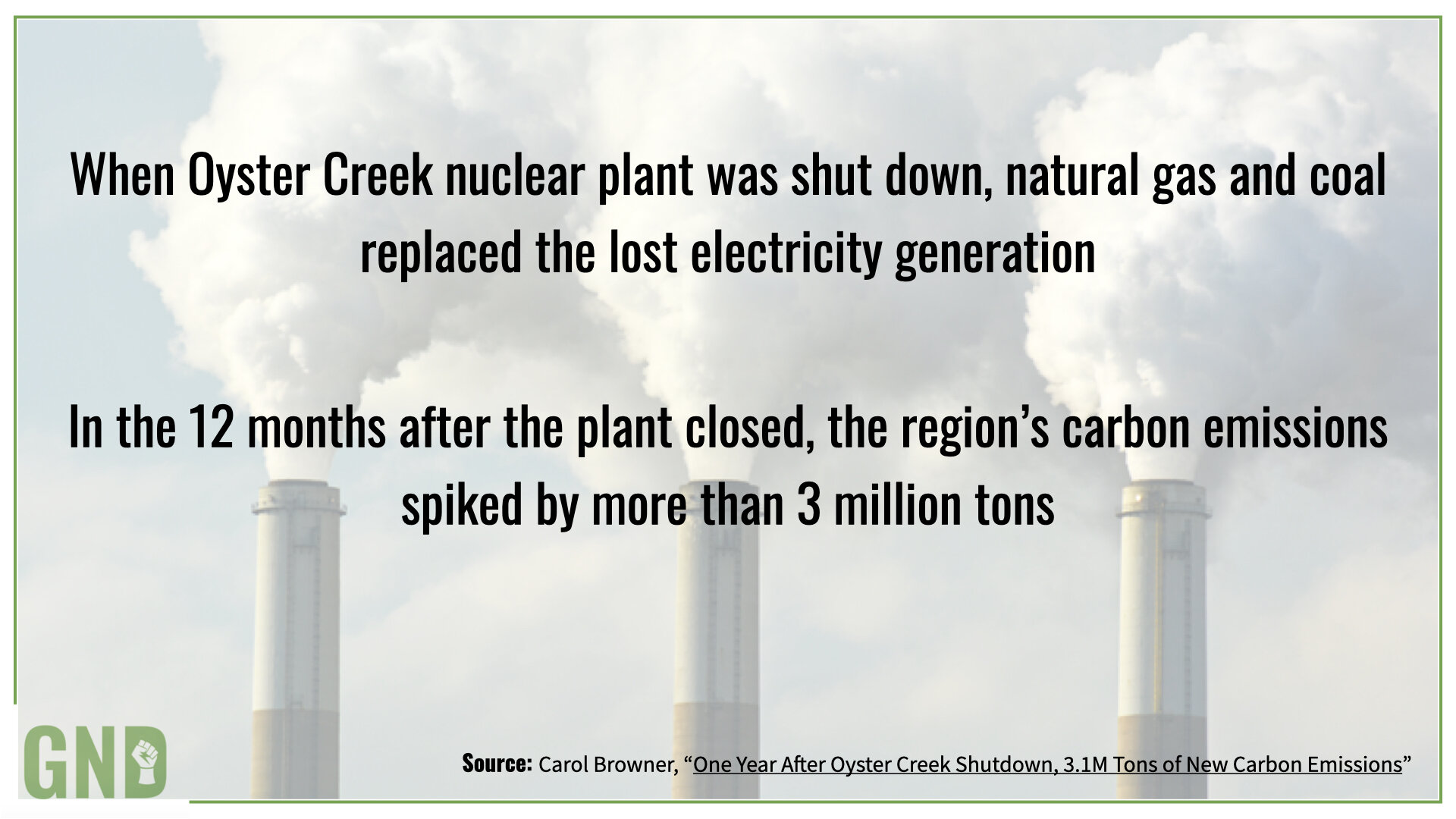
New Jersey
Summary
New Jersey’s two nuclear plants, Hope Creek and Salem, provide 40% of the state’s electricity and 90% of its clean energy
New Jersey is at risk of losing its nuclear plants if the Zero Emission Credits (ZEC) aren’t renewed
In the News
By R. William Potter, Lawyer
NJ SPOTLIGHT NEWS | MAR 5, 2021
By William T. Mullen, President of the New Jersey Building & Construction Trades Council
THE STAR-LEDGER | JAN 13, 2021
By Rick Thigpen, Chairman of the PSEG Foundation
NJ SPOTLIGHT NEWS | SEP 21, 2020
Frequently Asked Questions
What’s happening with Hope Creek and Salem?
In 2018, New Jersey created a program to award Zero-Emission Certificates (ZECs) to these nuclear plants. By valuing the avoided cost of pollution, which energy markets ignore, the ZECs help the plants to continue operating.
On April 27, the Board of Public Utilities will vote on whether to renew these subsidies or not.
Should the ZECs be renewed?
Yes! Today’s heavily-regulated energy markets do not properly value the clean, around-the-clock energy that nuclear plants make. ZECs make up for that disadvantage. By helping to keep the plants running, these subsidies allow New Jersey residents to avoid the cost increases and environmental consequences of using more fossil fuels.
What’s the status of the renewal?
Some opponents of the subsidies argue that PSEG, the company that operates the nuclear plants, could continue to run Hope Creek and Salem without financial help. However, given that nuclear is treated the same as fossil fuels in the electricity market, the plants are being undercut by historically-cheap fossil fuels.
In 2018, the ZECs narrowly saved Hope Creek and Salem by reversing PSEG’s difficult decision to close them. Elsewhere in the country, nuclear plants have been less fortunate. Prior to the closure of a nuclear plant in Pennsylvania in 2019, groups who opposed much-needed subsidies claimed that the plant could survive without them.
Who is opposed to the ZEC program?
Some consumer advocacy groups are against consumers footing the bill for the subsidies, unconvinced that PSEG would have to retire Hope Creek and Salem. Environmental groups like the Sierra Club have raised concerns that renewable energy in the state would suffer despite receiving subsidies at rates of 18 to 28 times higher per unit energy than the ZECs.
What are the environmental implications of losing Hope Creek and Salem?
If Hope Creek and Salem close, New Jersey would lose 90% of its clean energy overnight, jeopardizing the state’s ability to decarbonize. Although New Jersey plans to build off-shore wind turbines, fossil fuels would replace the majority of the lost power. This would lead to an increase in carbon emissions and pollutants affecting the health and well-being of New Jersey residents.
Are there economic implications of losing Hope Creek and Salem?
New Jersey’s nuclear plants are economic engines that support thousands of high-quality, local jobs and provide millions of dollars in tax revenue to the state every year. While residents everywhere would suffer from the loss of clean electricity if the plants closed, families who live and work near the plants would be the most impacted.
How can I help?
Everyone should contact their state representative and state senator to let them know they need to take action to protect New Jersey’s nuclear plants. You can also contact the governor’s office to voice your concern. Follow the activities of the New Jersey Board of Public Utilities (NJBPU) and participate in public hearings.
Get involved!
Contact our New Jersey Strategic Coordinator, Dylan Moon.










